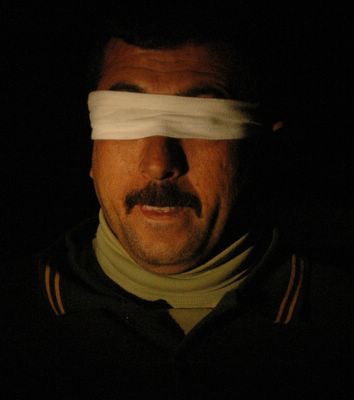Seven Days to Forever

Intelligence clues led US soldiers to this
suspected insurgent's home in Baquba.
Michael Yon
Baquba, Iraq
A critical moment in Iraq’s future history is only seven days away. Nobody knows which direction the elections will lead Iraq, the region and, by extension, the world. If the painful journey to democracy eventually works, the implications for civilization might be as profound as those precipitated by the “unimaginable” fall of the Soviet Union. But if Iraq disintegrates into full-scale civil war, the future of the region will be less predictable than next year’s rainfall.
Here on the ground, it is clear that Iraq already is embroiled in civil war. But the war has not crossed some imaginary threshold whereupon people have labeled it civil war. Some would call the current state “civil unrest,” seemingly reticent to hazard uttering more ominous words, perhaps fearing the self-fulfilling power that words often bear. Or, perhaps, they are timid to speak the obvious. Whatever the label, people are being murdered here every day, often randomly and in spectacularly horrendous attacks. US experts are predicting massive suicide and other disruptive actions to thwart the elections.
And yet, here, in Baquba, one of the most dangerous places in Iraq, the atmosphere is almost painfully quiet. I have grown accustomed to daily explosions and machine-gun fire in Baquba. But today, nothing. The closer the elections, the quieter Baquba becomes.
The officers and men of the 1st Infantry Division theorize about what is happening—and not happening—in Baquba. Some believe the sudden rains and cold weather have driven the insurgents indoors; the insurgents here have earned reputations for being vicious but fair-weather fighters. They simply do not attack in uncomfortably cold or wet weather.
Other soldiers believe that constant raids by US forces have put the insurgents on the defense. Captain Jason Williams, a battalion intelligence officer with the US Army here in Baquba, told me less than one hour ago that US forces have recently detained approximately sixty insurgents. Having accompanied the Army on many of these raids, I have every reason to believe this claim.
But Captain Williams avoids speculation about the reasons for the decreased enemy activity in Baquba. The obvious backdrop is that the enemy is biding time and preparing for next Sunday, election day, to launch massive attacks against the forty or so polling stations in Baquba.
Yet only one bomb was found in Baquba this Monday. A small explosive was found at a local school and disarmed by Iraqi authorities, with no casualties.
Why has Baquba fallen silent?







<< Home